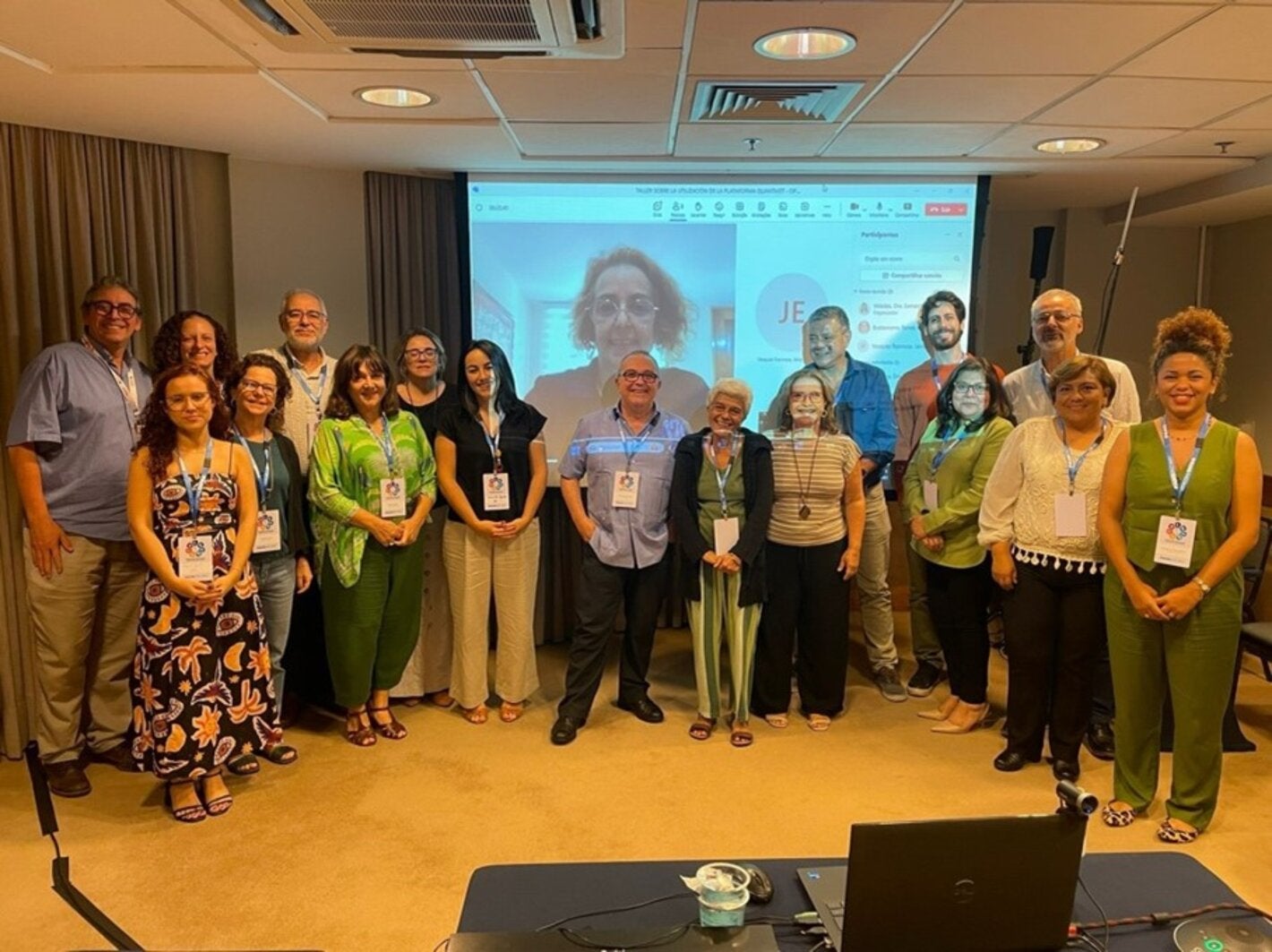
The PAHO Strategic Fund (SF) has been actively collaborating with various partners to enhance access, optimize quantification, and foster stronger partnerships in addressing the region’s needs related to Leishmaniasis. By participating in key events, the Strategic Fund has demonstrated the important role of technical cooperation and pooled procurement in accessing Leishmaniasis medicines.
- Improving quantification of Leishmaniasis needs: A Regional Collaborative Effort through QuantMET
The Strategic Fund introduced QuantMET—a morbidity-based tool for assessing medicines and health technology needs—during a recent workshop in Brazil organized by PAHO and the Drugs for Neglected Diseases initiative (DNDi). Representatives from three countries (Guatemala, Mexico, and Brazil) analyzed the current state of leishmaniasis medicines in the region and identified key challenges related to access and inadequate quantification. The QuantMET methodology for estimating needs using the morbidity method and the structure of the module were shared, acknowledging the importance of epidemiological information, treatment schemes, logistical information, interdisciplinary work in methodology management, and tools for quantifying needs.
Participants delved into various scenarios for quantification, leveraging epidemiological, clinical, and logistical data.
A user test was recommended. In a subsequent phase, the module will be piloted, focusing on Brazil and Mexico due to their population size and the prevalence of leishmaniasis cases.
2. Promoting Access: pooled procurement and technical updates meet at RedeLeish
The 8th Meeting of Researchers and Collaborators in Leishmaniasis (redeLEISH) provided a nurturing exercise for the SF to deliver insights and renew its commitment to assist countries in accessing leishmaniasis medicines. The meeting also covered the current state of cutaneous leishmaniasis, clinical research, diagnostics, treatments, and public policies related to access to medicines in the region.
During this exchange among researchers, the role of the SF in enhancing the availability of new pre-qualified medicines, diagnostics, thermotherapy, and cutting-edge devices was highlighted, as well as its part in fostering collaboration and sharing knowledge between countries.
3. Sharing Lessons Learned from the RRFs: Empowering Health in Eastern Africa
As experts discussed strategies to enhance health outcomes for vulnerable populations during the Joint WHO-DNDi meeting on Visceral Leishmaniasis (VL) in Eastern Africa, the Regional Revolving Funds emerged as crucial mechanisms to generate cost savings and guarantee quality assurance.
These Funds facilitate timely access to essential medicines and diagnostics, streamline procurement processes, and create a sustainable mechanism for access to health supplies.
“Such partnerships with WHO and DNDi to exchange ideas and lessons learned and leverage tools like QuantMET from regional and global initiatives will address current challenges and help us build sustainable solutions for the future." Said Christopher Lim, Chief of the Strategic Fund.



